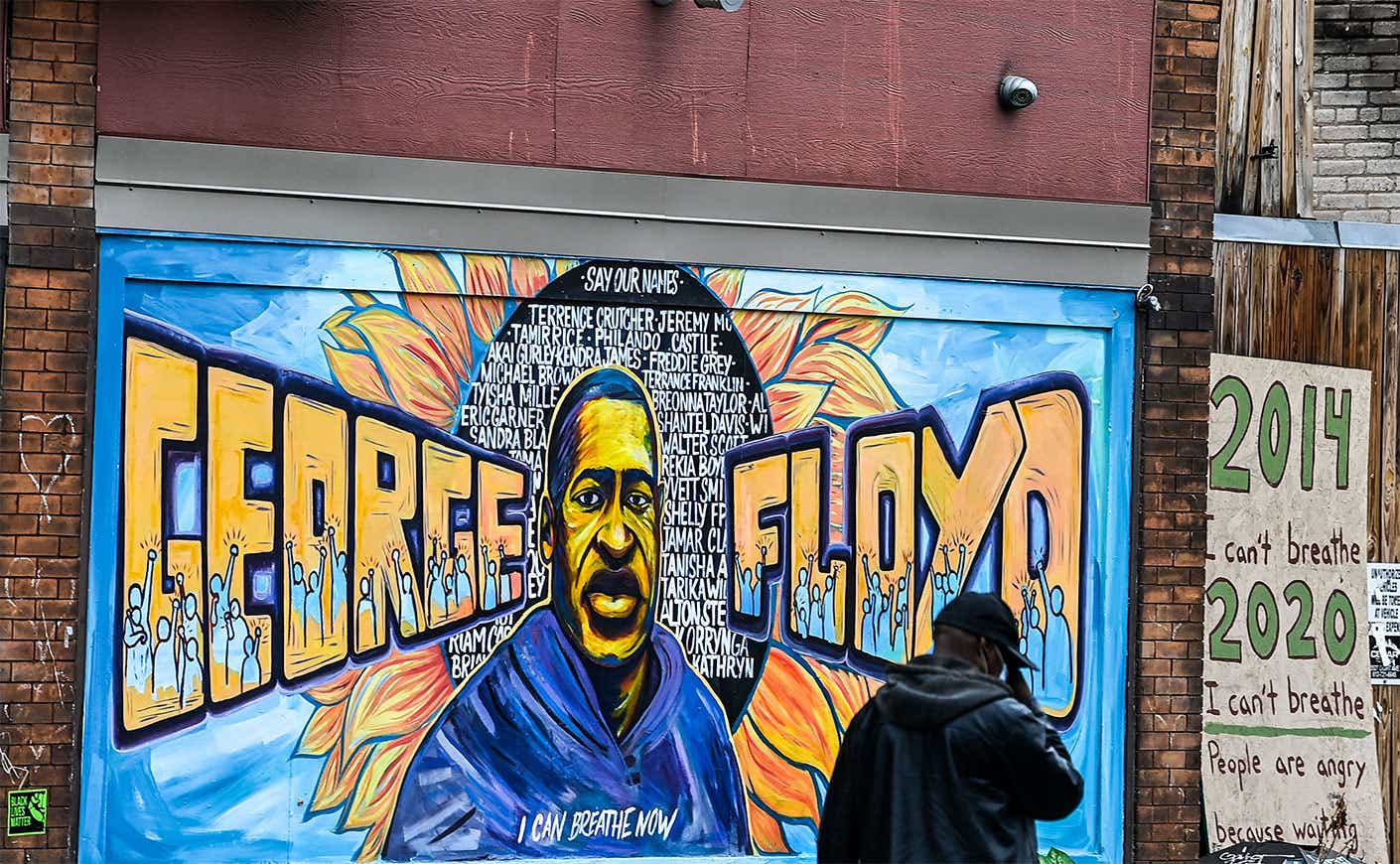It has been almost been a year since George Floyd died in police custody after being handcuffed and pinned to the ground by an officer in a video that touched off nationwide protests and a reckoning over racial inequalities.
Now that one of the officers charged in his death is standing trial, the George Floyd Memorial Foundation wants to make sure that justice is served. The nonprofit has launched a series of initiatives around the trial, including a postcard campaign demanding accountability in Floyd's death.
“We know that once it's all said and done that we will obtain justice,” Jacari W. Harris, executive director of the George Floyd Memorial Foundation, told KCM.
Derek Chauvin, the ex-Minneapolis police officer who knelt on Floyd’s neck during an arrest, currently faces second-and third-degree murder and second-degree manslaughter charges. His trial is expected to begin on time and remain in Minneapolis, despite a motion by his defense lawyers to relocate and delay it due to the announcement of a $27 million civil settlement between the city of Minneapolis and Floyd’s family.
Chauvin’s lawyer argued that the settlement, which was announced when the criminal trial was on a lunchtime break, could taint the jury pool but a judge rejected this argument. Hennepin County Judge Peter Cahill called the timing of the announcement "unfortunate," but said a delay would only add further pretrial publicity. This comes after Cahill dismissed two seated jurors after they admitted that they had heard about the settlement and could no longer be impartial.
Though the timing of the payout was also criticized by some legal experts, L. Chris Stewart, an attorney who worked with Floyd’s family, maintained that civil case didn’t have anything to do with Chauvin’s murder trial, saying “justice doesn’t really wait.”
Harris similarly emphasized in his interview with KCM that the civil suit is just one step towards seeking justice for Floyd’s death. He noted that the family plans to donate $500,000 of the settlement to local businesses near 38th Street and Chicago Avenue in Minneapolis, where Floyd was killed last May.
“We're really concentrating on a criminal trial and ensuring that we get justice — more justice,” he said. “As the family has said, they want George back.”
As jury selection continues, Harris expressed confidence about the trial’s outcome and said the foundation is using it to educate people on the importance of civic duty in their respective communities. He said he wants people, particularly people of color, to “understand why jury duty is a vital component of any trial.”
So far, 13 jurors have been seated in the trial, with at least two alternates expected to be selected. Seven of them identify as white, two as multiracial and four as Black, according to the court.
But Chauvin’s trial hardly marks the end of the case. The other former officers who were on the scene at the time of Floyd’s death — J. Alexander Kueng, Thomas Lane and Tou Thao — will be tried together in August.
The George Floyd Foundation is already shifting its sights ahead of that trial to focus on a new police reform bill that’s making its way through Congress. The legislation, the George Floyd Justice in Policing Act, was passed by the Democratically controlled House in early March.
“We’re just waiting for the Senate to debate, discuss and pass it because we know that once it lands on President Biden’s desk, that will be signed into law,” Harris said.
Biden has urged for the passage of the reform bill, saying he intends to sign it into law as soon as it reaches his desk but the legislation faces stiff opposition in the evenly split Senate. Though police reform isn’t necessarily a partisan issue, Republicans have already bashed the bill, saying it goes too far and would prevent police from doing their jobs effectively.
Specifically, while the bill would not technically result in reforms — such as the banning of chokeholds — at a state and local level, it would tie in new federal standards as thresholds for police departments to meet if they want to continue receiving federal aid. The legislation would also make it easier to pursue claims of police misconduct.
As the foundation waits for the bill to be taken up by the Senate, it hopes to continue to work towards creating long-term accountability and justice.
Less than a year old, the organization has already launched a number of initiatives. This includes an internship program for Black men in college, as well as a project to help combat homelessness. Most recently, it launched a legal scholarship program and a general fund program for current law school students, and students entering law school in fall 2021.
Harris said he hopes the program will “fill the gap” when it comes to the financial burden that law school often puts on students, particularly students of color. A 2015 study by the Bureau of Labor Statistics found that the law was the least racially diverse profession in the country, and it was still among the top least diverse professions last year.
“First and foremost, we're about justice and action. We serve as a resource for education, economic opportunity, justice, and the thought process is we serve as a thought leader in human rights,” Harris said.









